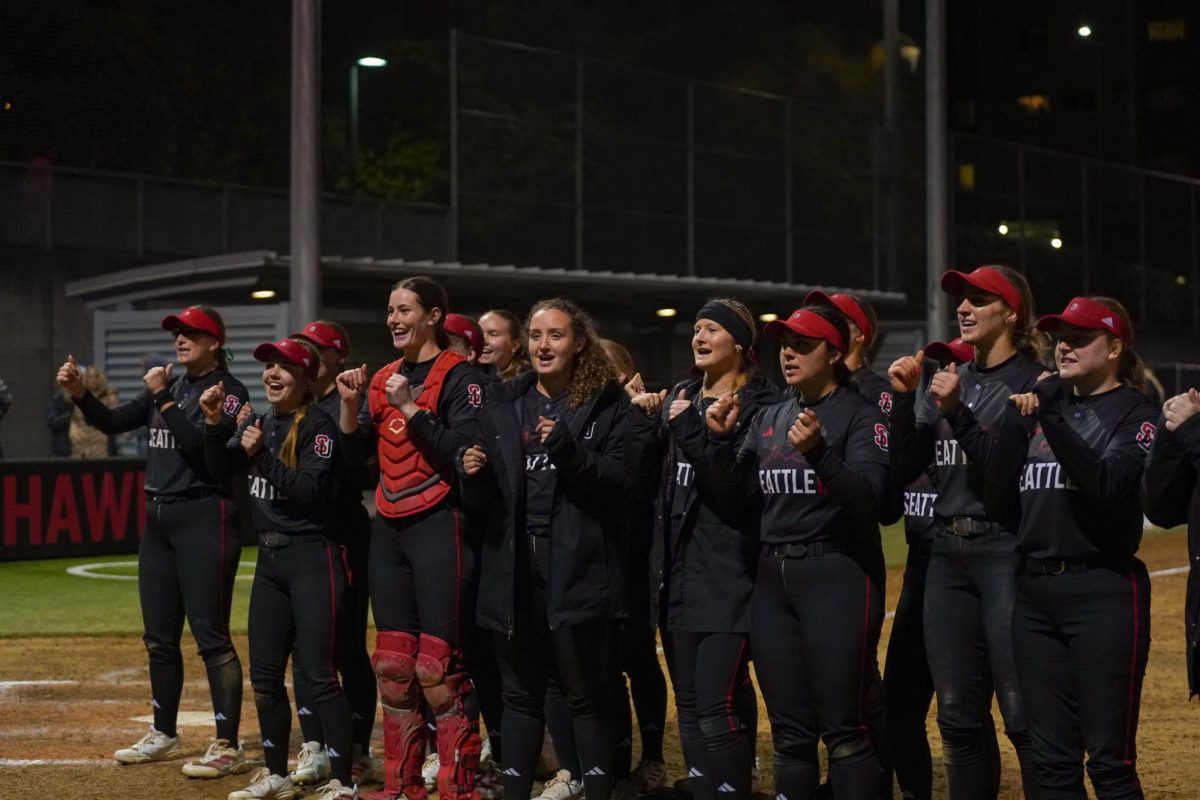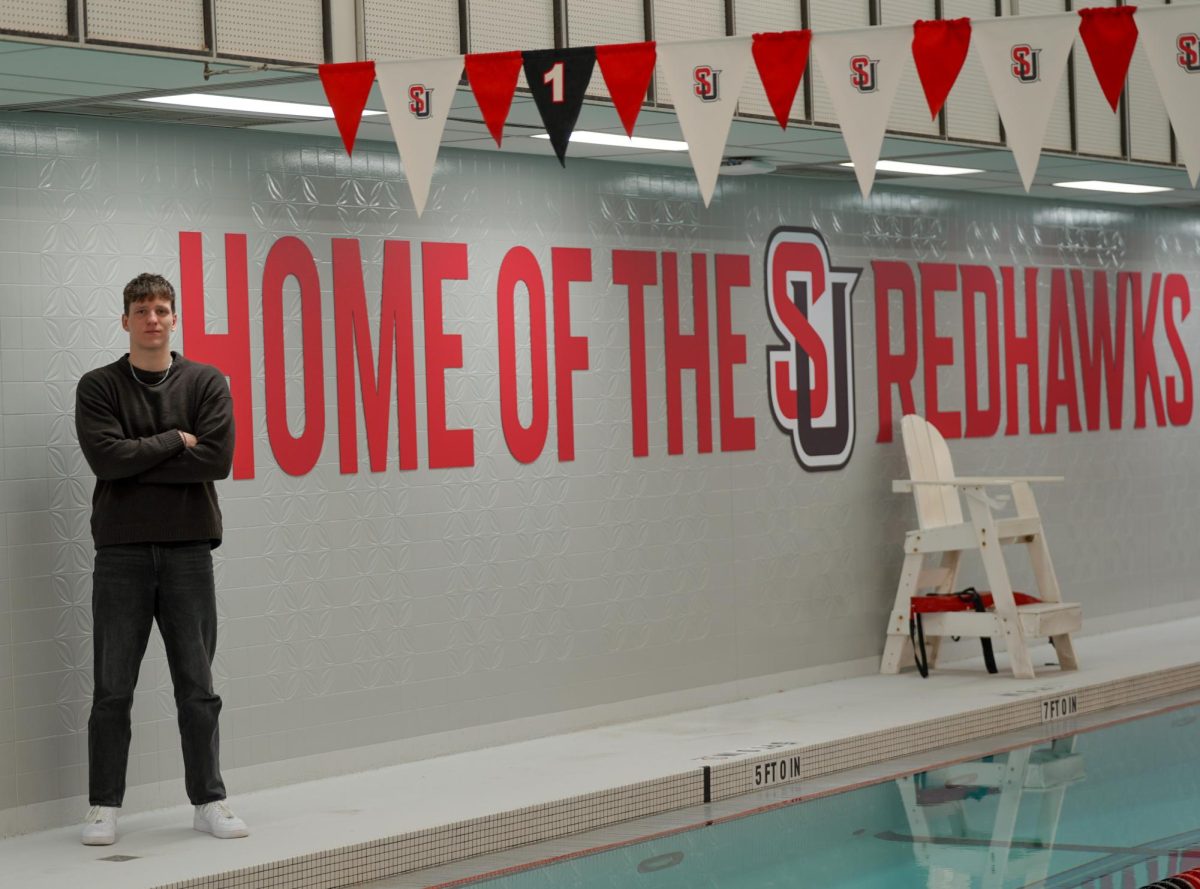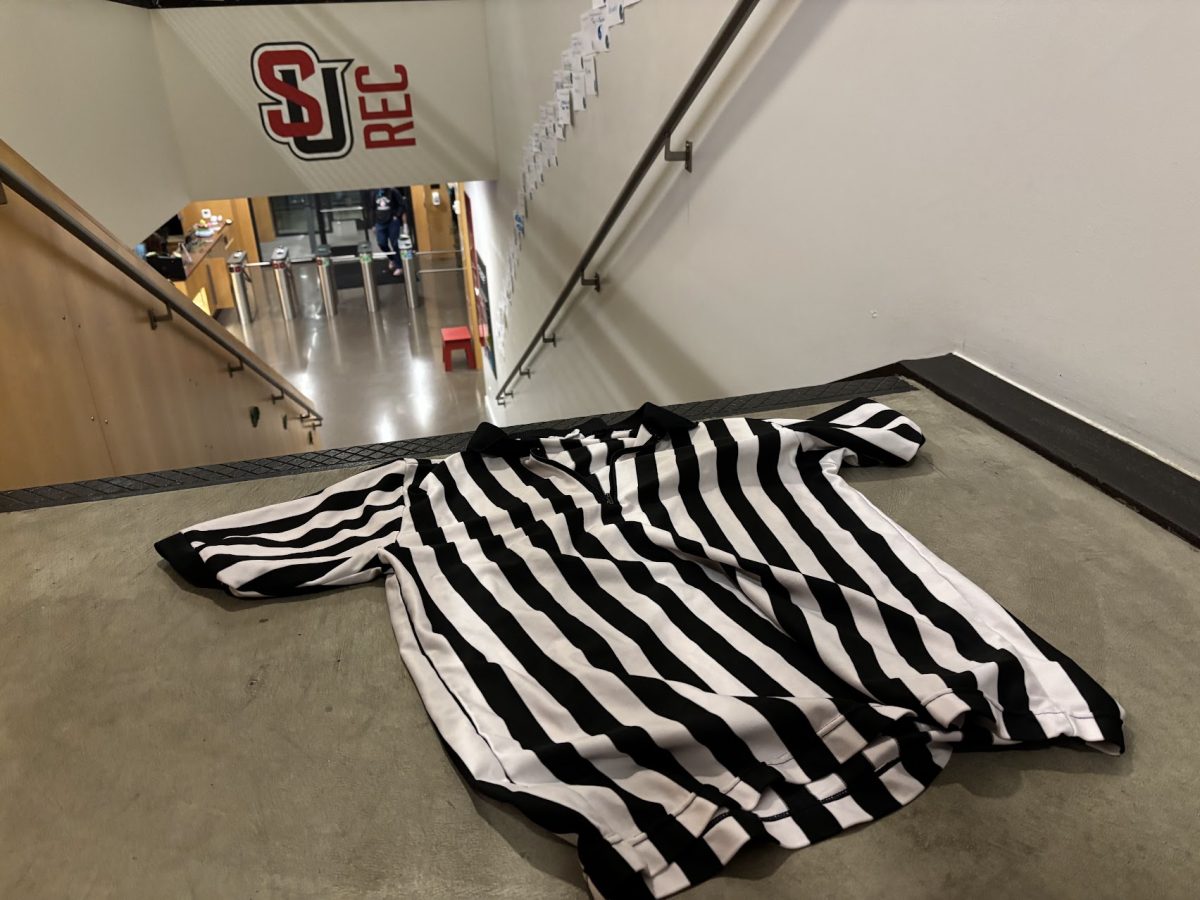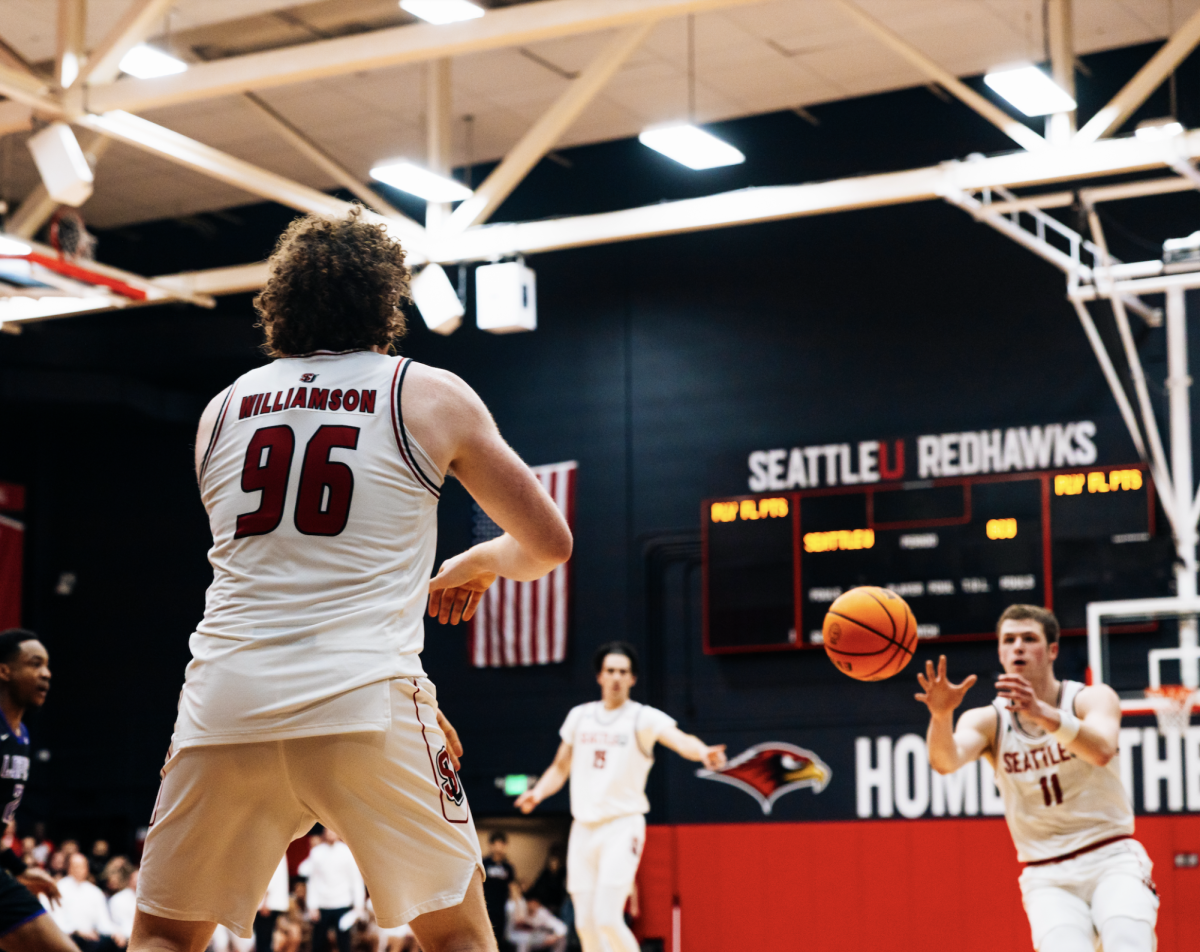On the Seattle University intramural co-ed flag football team that competes during fall quarter, a woman’s touchdown earns nine points, while a man’s earns only six. Though this rule attempts to make up for discrepancies in experience or ability between genders, players across the board are unhappy about it.
This rule is one among several others that Seattle U’s University Recreation (UREC) has adopted from the national NIRSA guidelines for intramural flag football. In addition to awarding women extra points for touchdowns, these rules state that after two plays involving male players, the next one must involve a woman. Ideally, the game requires eight players per team—four women and four men.
Junior photography major Elisa Pickett, who has played football recreationally with her friends and her brother for years, was surprised when she joined the Flag Football team last quarter and learned that the team had rules that applied differently to women.
“I was offended that they felt the need to make that rule,” Pickett said, referring to one that gives women extra points. “If I get a touchdown, I want the same amount of points. I don’t think I deserve any more.”
Jensen Hutto, a sophomore business management major who also played on the team last season, agreed that this rule seemed a little extreme.
“If you went for a three-point conversion after a girl touchdown, you were essentially looking at two guy touchdowns.” said Hutto. “It kind of felt like that [rule] was just using girls as an advantage instead of treating them as equal participants.”
Hutto said he appreciates the rule that requires women to be involved in the plays, because “it’s a great way to make sure that everyone is getting a touch on the ball.”
Pickett acknowledged that the rules are in place to promote equitable conditions on the field, but she said that a deeper problem exists. As a result, the rules often make the women
feel uncomfortable.
“You see an attempt to make it less sexist, but the misogyny of football is so ingrained it’s impossible to get out,” Pickett said. “I didn’t feel like we were very wanted or needed on the team, really. The men only passed to us when they had to.”
Hutto has a very different perspective. He has played on all-men intramural flag football teams in the past and he played football for a year in high school, but he said he enjoyed playing on a co-ed team more. He felt that any room for improvement lay within the rules themselves.
“I felt that the level of competitiveness did not decrease. It was more fun and there was a greater sense of community on the field on a co-ed team,” he said. “Our team, as well as the majority of the teams in the league, I felt like really put an emphasis on including women and making sure people felt like they had a role on the team.”
In general, co-ed sports face a difficult challenge in that they must bridge the gap between male and female athletes in a society that values men’s sports more than women’s. At the same time, to provide an equal playing field, they must account for any actual difference in ability caused by physical differences or lack of experience.
Assistant Director of UREC, Competitive Sports, Kari Budnik, said that the purpose of the rules is to ensure that women are involved and that the men don’t take over, especially in a sport like football.
“Most of the men have played football at one point in their life, and a lot of women don’t have that chance,” Budnik said. “And while it may sound kind of off that women just magically get these extra three points for doing the same thing, it does involve them more in the play.”
Budnik explained that other intramural sports, like basketball, have less standardized rules across the nation than flag football, but even so she is open to changing any rules that would make people
more comfortable.
“I always love to hear what the students want,” Budnik said. “If it was a consensus across every co-ed flag football team that they don’t want a rule, then I would definitely be open, because intramural sports are really for students.”
Madeline may be reached at mcorbin@su-spectator.com.







![All My Favorite Soccer Players Are Retired [OPINION]](https://seattlespectator.com/wp-content/uploads/2025/03/Screenshot-2025-03-05-at-20.37.13-1200x783.png)
NW Flag Football
Mar 28, 2016 at 3:13 pm
A possible solution might be if they had a men’s and women’s division and allowed for more equal competition that way. There are probably disadvantages of this idea too, but it might be worth exploring. Women’s only flag football teams have grown in popularity. The City of Everett has a Women’s High School league that is currently in season, and the City of Seattle’s Park and Rec is about to start their first Women’s league. Given the right coaching or guidance, flag football can be a great sport for women to really expand into.